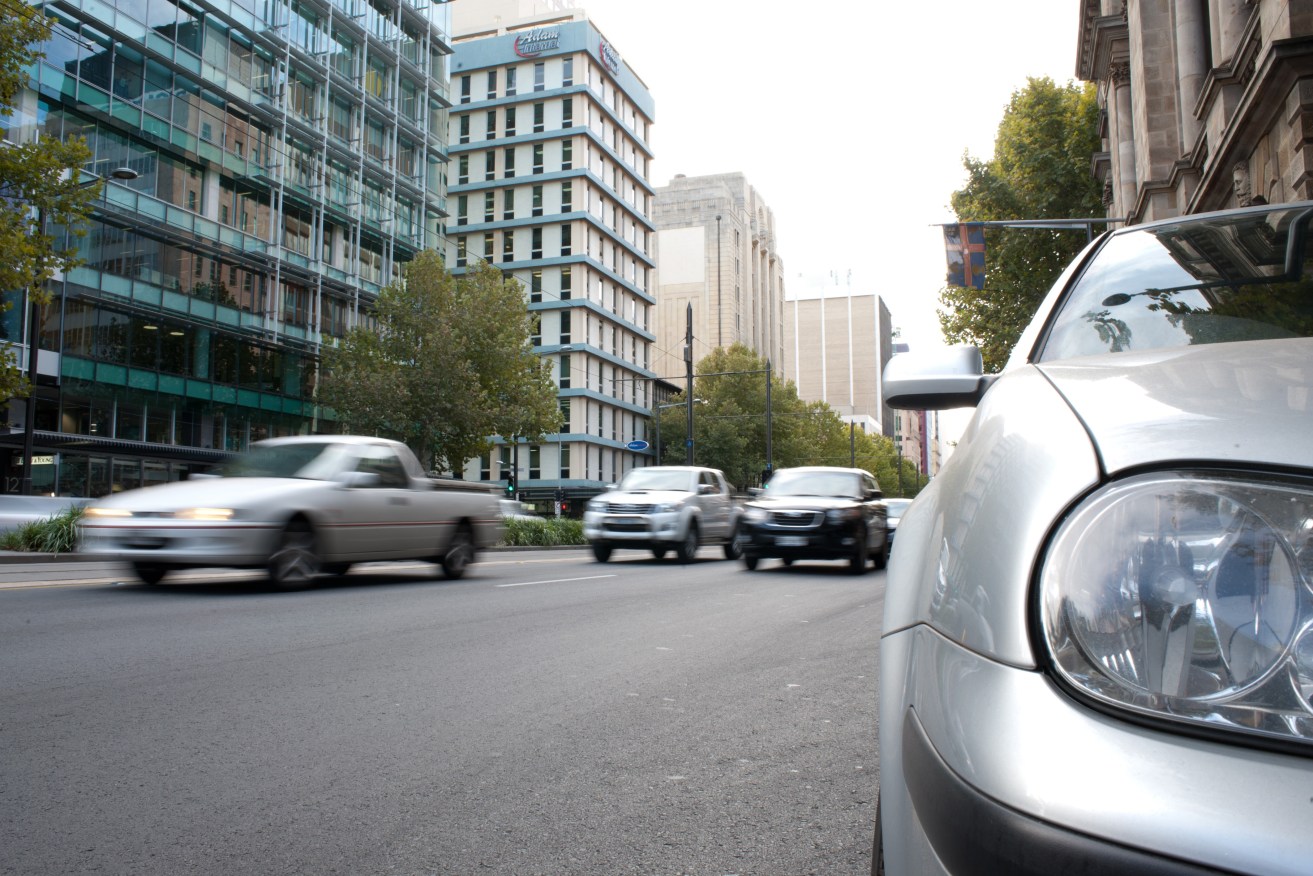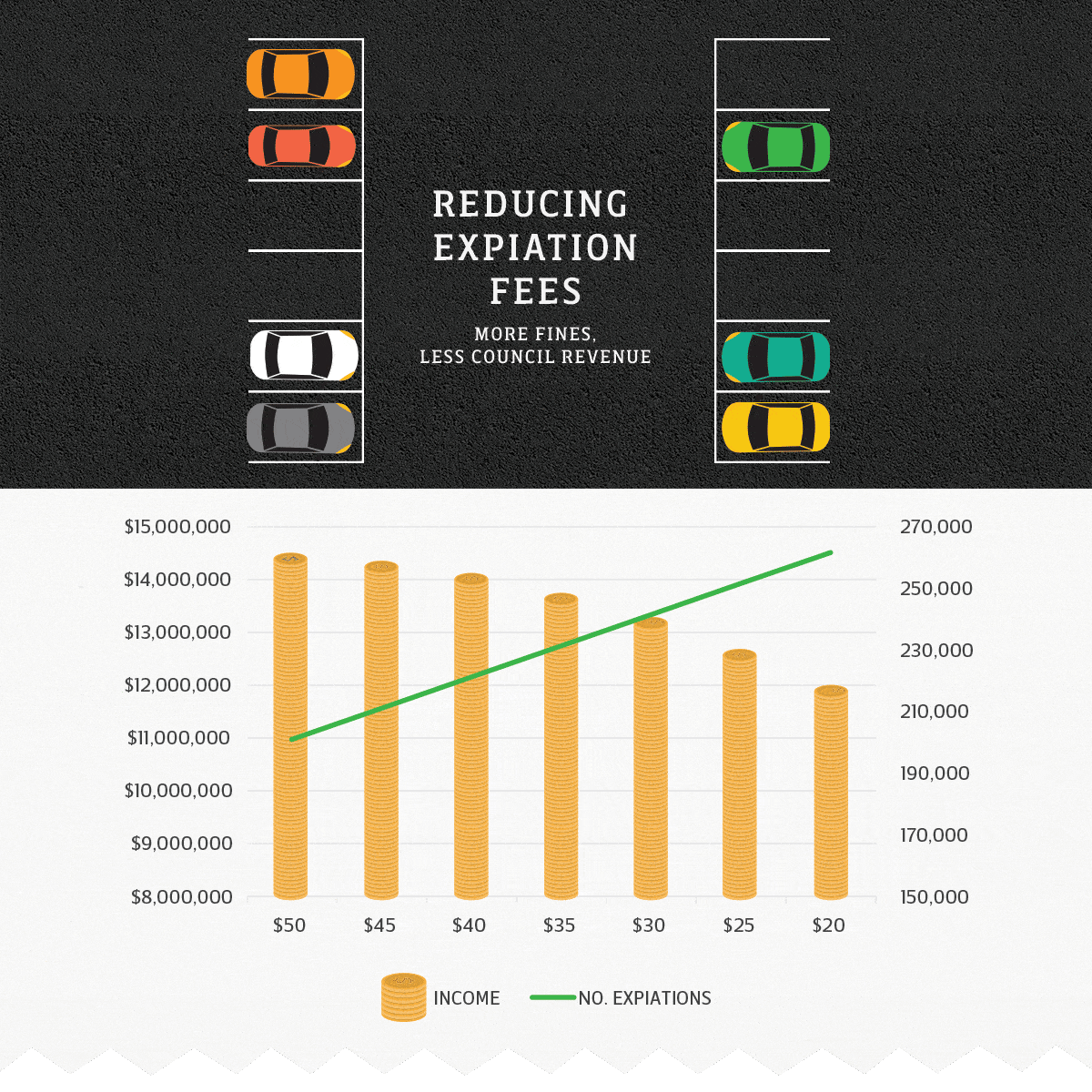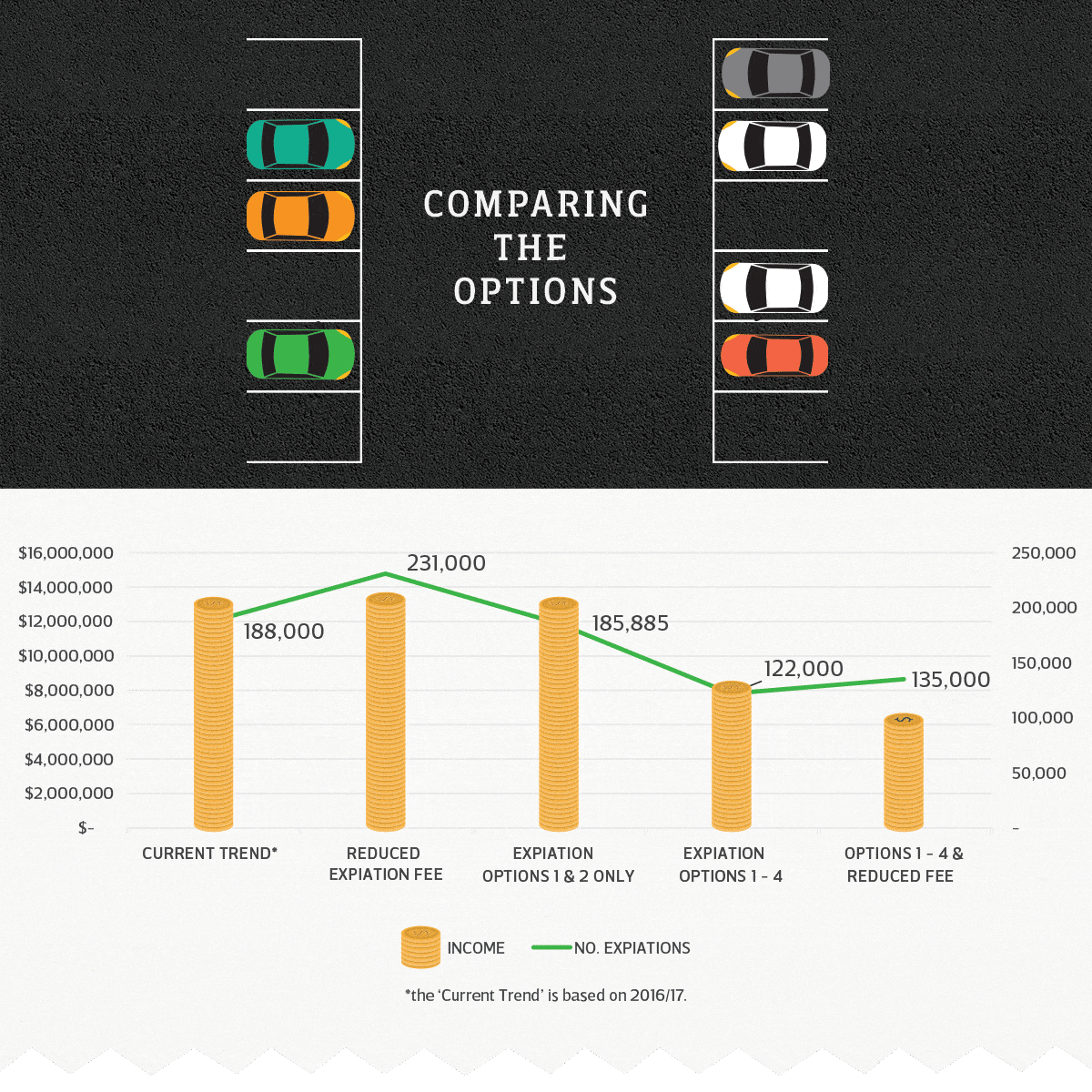Motorists vs ratepayers: city council’s multimillion dollar parking fine dilemma
Reducing parking fines might be good PR, but it will cost ratepayers millions of dollars and increase the frequency of illegal behaviour, Adelaide city councillors have been warned.


A car parked outside Adelaide Town Hall. Photo: Nat Rogers/InDaily
The council will tonight consider a series of measures to reduce the impact of parking tickets on city visitors, including reducing the cost of fines and handing out warnings – rather than fines – to infrequent or first-time offenders.
The State Government last week introduced legislation that would allow councils to set the cost of parking expiations.
But a report by city council staff warns that motorists are more likely to overstay a park, or park illegally, if the council cuts the cost of fines or allows its inspectors to issue warnings instead.
The report poses a dilemma for city councillors, weighing the interests of ratepayers (who could expect some reduced council services or higher rates if parking policy changes significantly) and the interests of city businesses (who could suffer lower turnover of carparks) against the interests of city visitors, who want to avoid parking fines, access the CBD easily and stay longer.
“If proposing a reduction in expiation fees, it is highly likely a reverse in the previously experienced behavioural trends will be observed, with an increased number of drivers failing to comply with parking controls … thereby reducing turnover of parking spaces and increasing the number of expiations issued,” the report reads.
“Previous statistics confirm (that) the value of an expiation fee influences driver choices.
“This was observed in 2011 when the State Government significantly increased the value of all expiation fees … from $22 to $43.”
The graphic below, with data from the council report, forecasts a higher number of fines issued, but a severe impact on council revenues, if parking expiations were reduced from the current standard $51 fee.

Cut-price expiations mean more fines but less council revenue. Graphic: Leah Zahorujko / InDaily / ACC.
The report outlines a series of policy options for councillors, some of whom have argued that nothing does more damage to the council’s reputation than parking fines.
OPTION 1: Delay overdue fees
The council could institute a two-week delay on mailing out reminder notices – usually sent out two business days after a fine has become overdue. Overdue fines attract an additional $51 fee.
This would benefit the recipients of 55,000 fines annually, and cost the council $65,000 in the first year and an unknown cost in subsequent years.
OPTION 2: Warnings, not fines, for breaking road rules
The council could allow parking inspectors to issue warnings, rather than fines, for offences such as parking in front of a fire hydrant or in the wrong direction, where the driver hasn’t committed a similar offence in the previous year, or three years.
Depending on whether the council chose one year or three years as the standard, the measure would benefit 1850 to 2420 people annually, and cost the council between $151,000 and $196,000 annually.
OPTION 3: Courtesy letter
The council could mail a “courtesy letter” to remind people of overdue fines before they incur additional fees.
This would benefit 36,000 to 55,000 people each year and cost ratepayers up to $1.4 million annually.
OPTION 4: The big one… warnings, not fines, for infrequent parking offenders
The council could allow parking inspectors to issue warnings, not fines, for motorists who overstay or park illegally, and to those who break Australian Road Rules (as in option two) – if they haven’t committed a similar offence in the previous year or three years.
This would cost the council between $3.1 million and $4 million and benefit 52,000 to 67,000 motorists each year.
Feeling generous?
The report recommends the council take up only Option 1 and Option 2.
But if the councillors are feeling generous to city visitors, taking up all of the options and cutting the cost of individual parking fines, it would cost ratepayers nearly $9 million between now and mid-2020 – and an extra $5.3 million every year thereafter plus CPI.
The graphic below, produced using data from the report, models the impact of the various options.

Comparing the policy options. Graphic: Leah Zahorujko / InDaily / ACC.
Aside from proposed changes to parking regulations, the council is considering setting up a panel of elected members, which would be empowered to cancel tickets on “compassionate” grounds.
The council’s administration is currently in negotiations with a contractor to implement “smart parking” technology, including sensors on the ground and a mobile application to remind motorists their park is about to expire.
The report will be presented to a council committee tonight.
The policy options could be presented to a full council meeting for a formal decision next week, or put off for a later meeting.




